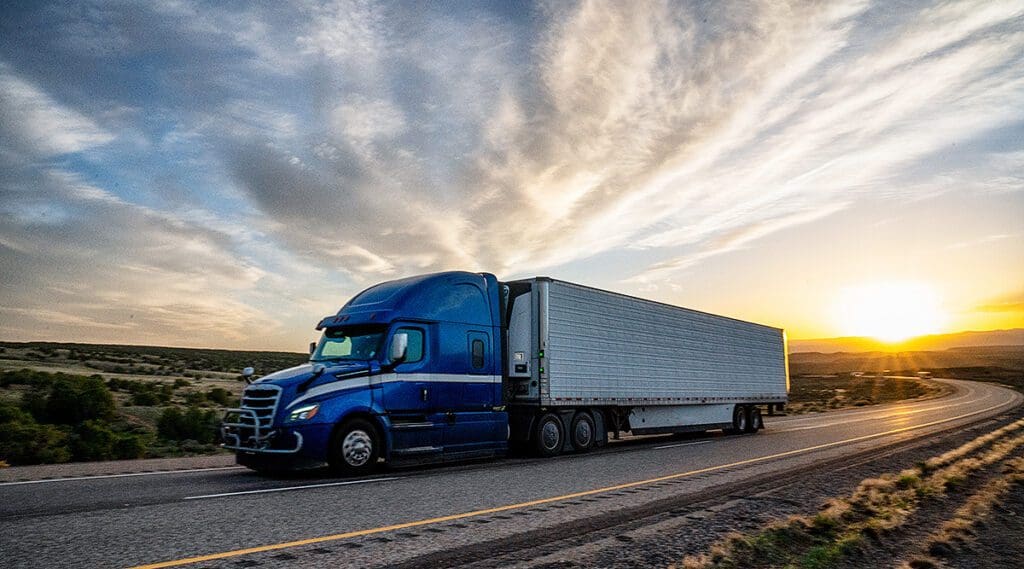America lives and dies by the trucking industry. Especially since the COVID pandemic, most of the goods that we use every day are shipped on a truck. In other words, if you bought it, a truck brought it. The trucking industry is a vibrant and necessary part of our economy, one that needs to stay healthy for all of us to function effectively in our lives and our businesses.
The trucking industry has some unique challenges when it comes to insurance. Underwriters rely heavily on the FMCSA score for any trucking company they are looking to insure. This score is based on truck inspections by the highway patrol to determine quality of equipment (brakes, tires, lights), how well the load is secured, fitness or fatigue of the driver, how long he or she has been on the road, and other factors. Over time, those inspections make up a score that gives an overall snapshot of the health of the company regarding safety and willingness to follow rules and regulations.
These regulations become more complicated depending on what the trucks are carrying – fuel, crude oil, refrigerated goods, etc. And the risks increase as well. For example, if a driver delivers a truckload of refrigerated food to a grocery store, but the log shows that the average temperature of the refrigeration unit was off by one degree, the customer doesn’t have to accept the load. This exposes the trucking company to a claim from the shipper against the cost of that load. Or if a truck carrying a toxic chemical turns over and the chemical spills, the trucking company could be responsible for the cost of the pollution cleanup.
Perhaps the biggest liability a trucking company faces is that posed by its own drivers. Trucking companies are hurting to find drivers right now. There is a shortage of CDL holders in the marketplace, meaning sometimes trucking companies are forced to hire drivers with a less than stellar driving record. This leaves them open to some serious risks in the eyes of the insurance company. Even though a driver with a safe record can also have an accident, those with a proven history of distraction or neglect are already high risk and will drive premiums up dramatically, especially if they have another accident.
Despite these risks, there are things that trucking companies can do to protect themselves and ensure that their trucking insurance premiums won’t run them out of business.
First, good money management is key. Companies that have a lot of heavily leveraged equipment do not have the luxury of letting their trucks sit while they look for highly qualified drivers. These companies are more likely to hire drivers with less than stellar records because they must keep those wheels turning to stay in business. But those businesses that have paid off their equipment have fewer debts and can afford to let a truck sit while they find the right person for the job. These safer, more skilled drivers will draw a sigh of relief from underwriters and that will be reflected in lower premiums.
Second, make safety culture a number one priority in your organization. Running a business takes a lot of time and energy. It’s easy to get busy and distracted and let safety fall to the bottom of the priority list. But safety is the number one defense against risk, and if owners and managers take it seriously, so will drivers. Conduct safety training on a regular schedule and stick with it. Establish a good safety culture right off the bat with new drivers. From the moment they are hired, drill those safety principles into their heads and make it clear that your company identity revolves around safety. Companies that do this get buy in early on from their employees and avoid a lot of heartache down the road. For more tips on how to create a culture of safety in your company, read our post, How to Actually Build a Culture of Safety.
Third, know what can and will go wrong, and prepare for it with the right insurance coverage. For example, if you haul refrigerated goods, you need to have a good policy for refrigerator breakdown. If you haul hazardous materials, you need a policy that will adequately cover any HAZMAT cleanups that might occur. If you haul dirt, gravel, and sand, be prepared with a policy that will pay for many cracked windshields on the freeway if a load isn’t secured properly. If your loads are going long distances, make sure your towing insurance is enough to cover the huge towing expense if your truck is involved in an accident in a remote location and is not drivable.
One of the biggest mistakes you can make is to assume that a general liability policy will be enough to cover you in every circumstance. Even if you buy a commercial umbrella to sit over the top of your policy for auto liability, sometimes there are exclusions or limitations you aren’t aware of. It’s important to go over your policy carefully and make sure that it covers every risk your company might encounter. A good agent with experience in the trucking industry can help you determine how much coverage is right for your business, what types of policies will provide that coverage, and how to make changes and adjustments to fit your specific needs.
For more information about the ins and outs of trucking insurance and how Beehive can help you find the right policy for your business, contact us today. We are here to help.



